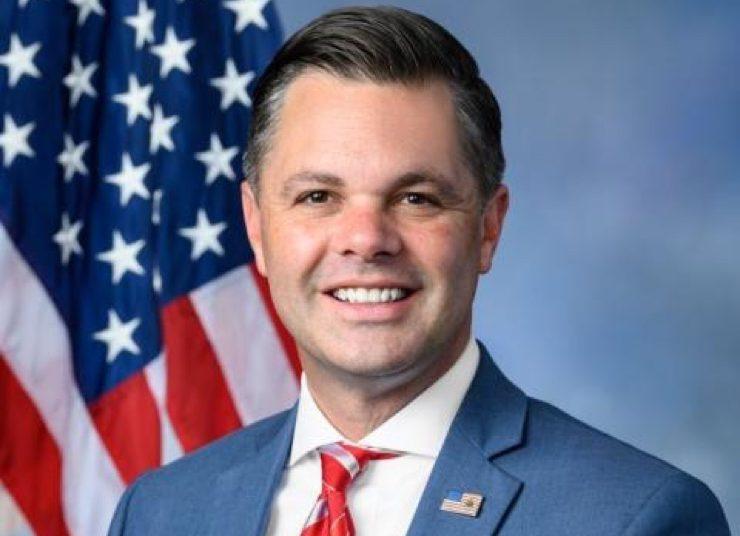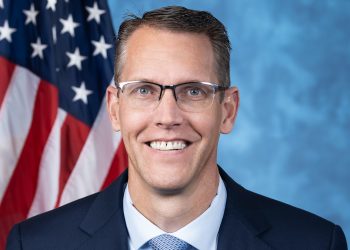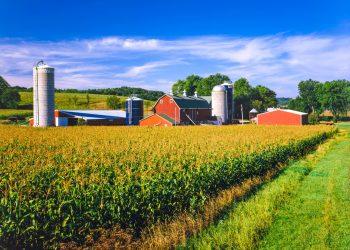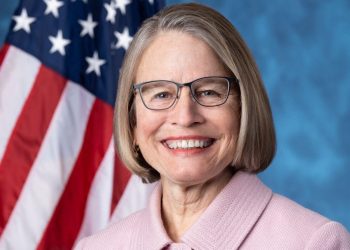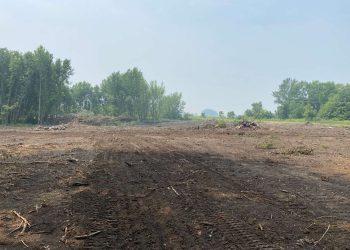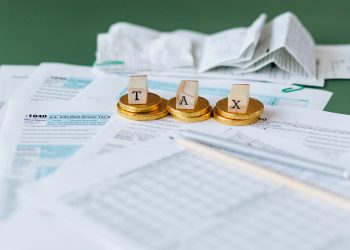DES MOINES, Iowa – U.S. Rep. Zach Nunn, R-Iowa, on Wednesday introduced bipartisan legislation to improve access to high quality, affordable broadband in rural communities. The ReConnecting Rural America Act makes improvements to the U.S. Department of Agriculture (USDA) ReConnect Program, which offers loans, grants, and loan-grant combinations facilitating broadband deployment in areas of rural America that currently do not have sufficient access to broadband. The bill is cosponsored by U.S. Representatives Angie Craig, D-Minn., Darin LaHood, R-Ill., and Eric Sorensen, D-Ill.
“During my Farm Bill listening tour, improving broadband access is one of the top priorities I’ve heard about. Access to high quality, affordable internet is critical for telehealth services, education, precision agriculture, and quality of life in rural America,” Nunn said. “This bipartisan bill will ensure faster, more reliable speeds for rural communities with the most critical needs.”
Iowa ranks 45th for broadband access in the U.S. with the 2nd slowest speeds on average. Approximately one third of the state is in a rural broadband dessert. Nationally, 22 percent of Americans lack access to fixed terrestrial 25/3 Mbps broadband, the Federal Communications Commission’s (FCC) minimum standard for broadband speed. Many Americans, in particular in rural areas, lack access to higher speed 100/100 Mbps service required to telecommute, access telemedicine, or participate in remote schooling.
“Every single community deserves access to reliable, affordable high-speed internet. I’m proud to introduce this bipartisan bill to strengthen USDA’s ReConnect Program and provide Minnesota’s rural schools, businesses and families with the internet access they need,” Craig said.
“Access to reliable and fixed broadband is critical to our communities in the 16th District of Illinois, one of the largest rural and agriculture districts in the country,” LaHood stated. “As we work to bridge the digital divide, I am proud to join this bipartisan group to introduce legislation that will expand broadband access for those who need it most in our rural communities.”
“Broadband touches so many facets of our society, from health care, to education, to economic opportunity,” Sorenson said. “Access to affordable internet in rural communities is a necessity, not a luxury, in 21st century America. I’m proud to join this bipartisan effort to expand broadband access to those who need it most.”
Established in 2018, the USDA ReConnect Program provides loans and grants to eligible entities to facilitate broadband deployment in underserved areas of rural America that do not currently have sufficient access to broadband.
The ReConnecting Rural America Act strengthens the USDA ReConnect Program by:
- Making the ReConnect Program permanent
- Authorizing the USDA to make loans, grants, and grant-loan combinations for the construction and improvement of equipment and facilities to provide broadband
- Establishing requirements for faster, more reliable internet at a 100/100 Mbps symmetrical buildout speed.
- Prioritizing communities with the greatest need for increased speeds by defining unserved communities as at least 75 percent of households unserved at 100/20 mbps speed and prioritizing awards to areas in which at least 90 percent of households lack 100/20 mbps speed.
- Ensuring the program can keep up with the increase in demand by including sufficient funding authorization levels.
The ReConnecting Rural America Act is supported by the Rural Broadband Association (NTCA), National Rural Electric Cooperative Association (NRECA), the Farm Credit Council, and the Fiber Broadband Association.
“As small broadband providers in rural areas work tirelessly to bridge the digital divide, the ReConnect program has been an important resource to get the job done,” NTCA CEO Shirley Bloomfield said. “The ReConnecting Rural America Act improves upon this already successful program to better target funding where it is needed most, recognizes that experience matters when it comes to delivering rural broadband, and ensures that those in the most rural and hard to serve areas receive the same high-quality, high-speed broadband as those in urban areas.”
“Efforts to close the digital divide began nearly 25 years ago, and yet many rural families and businesses still lack access to a reliable internet connection simply because of where they choose to live. That’s unacceptable,” Louis Finkel, Senior Vice President of Government Relations at the National Rural Electric Cooperative Association (NRECA), said. “The bipartisan ReConnecting Rural America Act will make USDA’s ReConnect Program permanent, and provide the tools and flexibilities necessary for rural providers to meet the unique challenges of building lasting broadband networks in rural areas.”
“Reliable and consistent broadband is a necessity, not a luxury,” Todd Van Hoose, President and CEO of the Farm Credit Council, said. “This essential service is integral to keeping rural communities thriving. Broadband is needed to attract the next generation of producers into agriculture and for keeping rural residents in rural communities.”
“Over the years, the ReConnect program has provided funding to ensure more remote communities in America have the same broadband capabilities as urban areas, connecting them largely with reliable, fiber broadband networks,” Gary Bolton, President and CEO of the Fiber Broadband Association, said. “But, far too many rural communities are still stranded on the wrong side of the digital divide. By reauthorizing ReConnect and requiring that projects offer a minimum service build out speed of 100 Mbps symmetrical broadband service, the legislation will ensure that taxpayer dollars are used wisely and most importantly that rural Americans and their communities will receive the broadband connectivity that meets their needs today and tomorrow.”
Nunn announced this legislation at MercyOne Medical Center in Des Moines, Iowa. As a member of the House Agriculture Committee, he is working to incorporate the bill into the 2023 Farm Bill.
A companion bill has been introduced in the Senate by U.S. Senators Roger Marshall, R-Kansas, and Peter Welch, D-Vermont.
Read the full text of the bill below:
nunn_021_xml


